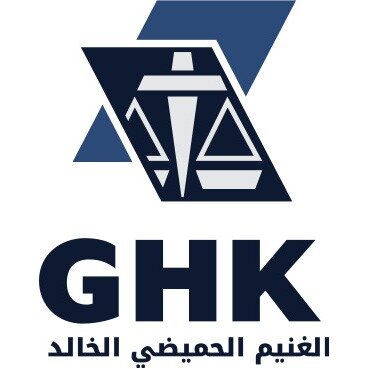Best Energy, Environment & ESG Lawyers in Kuwait
Share your needs with us, get contacted by law firms.
Free. Takes 2 min.
Or refine your search by selecting a city:
List of the best lawyers in Kuwait
About Energy, Environment & ESG Law in Kuwait
Kuwait is a key player in the global energy sector, known for its vast oil reserves and strategic position in the Gulf region. The country's economy relies heavily on its petroleum industry, yet, in recent years, Kuwait has also placed growing emphasis on environmental protection and the promotion of Environmental, Social, and Governance (ESG) standards. Laws and regulations governing energy, environment, and ESG issues in Kuwait aim to balance economic growth with the need to protect natural resources, meet international climate commitments, and foster sustainable business practices. As sustainability becomes more central to both local and global agendas, understanding the legal landscape in these areas is increasingly important for businesses and individuals operating in Kuwait.
Why You May Need a Lawyer
Navigating the field of Energy, Environment, and ESG law can be complex due to the highly regulated nature of these sectors in Kuwait. You might need legal assistance if you are:
- Setting up a business in the energy sector and need to comply with licensing and regulatory requirements
- Involved in a project that impacts natural resources or the environment, and need guidance on environmental permits or impact assessments
- Dealing with compliance or enforcement actions from government agencies related to pollution or environmental harm
- Developing or implementing corporate ESG strategies that align with Kuwaiti laws and international best practices
- Facing contractual disputes related to energy supply, renewable energy projects, or environmental liabilities
- Responding to or preparing for investigations concerning environmental violations or social governance issues
- Seeking financing for projects that require ESG compliance assurance to attract investors or institutions
- Assessing the risks and obligations attached to land acquisition, zoning, or infrastructure projects
In all these cases, the guidance of a qualified lawyer can help you avoid costly mistakes, ensure compliance, and safeguard your interests.
Local Laws Overview
Kuwait’s legal framework for energy, environment, and ESG is shaped by both national legislation and the country’s commitments to international agreements. Here are some key aspects:
- Energy Laws: The national oil sector is primarily controlled by state entities and governed by legislation such as Law No. 19 of 1973 (the Petroleum Law). Foreign investment in energy, including oil and gas, is subject to strict regulations and sometimes requires partnering with local entities. Efforts are being made to diversify energy sources through renewable energy projects, with new laws and guidelines emerging for the clean energy sector.
- Environmental Protection: The principal law governing environmental issues is Law No. 42 of 2014, as amended by Law No. 99 of 2015. This law regulates environmental protection, pollution control, waste management, and requires environmental permits and impact assessments for certain projects. The Environment Public Authority (EPA) is the main government body supervising environmental policies and compliance.
- ESG Compliance: Kuwait is increasingly encouraging companies to adopt ESG standards, especially those listed on the Boursa Kuwait stock exchange. Governance practices, transparency, social responsibility, and environmental management are now important parts of due diligence and company reporting. Some financial institutions and regulators are beginning to include ESG criteria as part of their investment assessments.
Local laws can be complex and evolve over time, so it is recommended to consult legal professionals for the latest and most relevant information.
Frequently Asked Questions
What government bodies regulate the energy sector in Kuwait?
The energy sector is primarily regulated by the Ministry of Oil and the Kuwait Petroleum Corporation (KPC), along with its subsidiaries. The Ministry of Electricity, Water and Renewable Energy also manages policies related to electricity and renewables.
What environmental permits are required for industrial projects in Kuwait?
Most industrial, infrastructure, and energy-related projects require an environmental impact assessment and permits from the Environment Public Authority (EPA) before commencement. Ongoing monitoring and compliance with permit conditions are mandatory.
Are there incentives for renewable energy projects in Kuwait?
Yes, Kuwait has launched initiatives such as the Shagaya Renewable Energy Park and offers some incentives for private sector investment in renewables, although the sector is still developing its regulatory frameworks.
Can foreign investors participate in the Kuwaiti energy market?
Foreign participation in the core oil sector is restricted, but there are growing opportunities in downstream projects, services, and renewable energy, often in partnership with local entities and subject to regulatory approval.
What are the penalties for violating environmental laws in Kuwait?
Penalties can include fines, closure of facilities, remediation orders, or even criminal prosecution for severe violations. The EPA actively monitors compliance and enforces sanctions when necessary.
How are ESG issues impacting businesses in Kuwait?
ESG factors are becoming increasingly important for local and foreign investors, lenders, and regulators. Businesses may face higher scrutiny regarding transparency, governance standards, environmental impact, and social responsibility.
Are there reporting requirements for ESG compliance?
Listed companies on Boursa Kuwait are encouraged to disclose ESG information, and regulators are moving towards standardized ESG reporting requirements. Some large banks and financial institutions also request ESG disclosures.
What role does the Environment Public Authority (EPA) play?
The EPA is responsible for enforcing environmental law, issuing permits, conducting inspections, monitoring environmental quality, and prosecuting violations.
Does Kuwait have any commitments under international climate agreements?
Yes, Kuwait is a signatory to the Paris Agreement and participates in global efforts to reduce emissions and promote sustainable development, which influence local environmental policies.
How do I resolve disputes related to environmental or energy matters?
Disputes can be resolved through negotiation, mediation, or litigation in the local courts. Specialized legal assistance can be crucial in submitting claims, defending actions, or navigating regulatory procedures.
Additional Resources
To stay informed and get help with energy, environment, and ESG legal matters in Kuwait, consider these resources:
- Environment Public Authority (EPA): Main government body for environmental information, permits, and compliance.
- Ministry of Oil: Responsible for policies and regulation of the oil and energy sector.
- Boursa Kuwait: Stock exchange with guidelines for ESG reporting and compliance for listed companies.
- Kuwait Chamber of Commerce and Industry (KCCI): Provides support for business regulations and compliance matters.
- Ministry of Electricity, Water and Renewable Energy: Key authority for renewable energy policies and licensing.
- Lawyer referral services: Available through KCCI and various professional associations for those seeking specialized legal advice.
Next Steps
If you need legal assistance in Energy, Environment, or ESG matters in Kuwait, consider the following steps:
- Define your needs: Clarify if your issue relates to business establishment, compliance, project permitting, dispute resolution, or ESG strategy development.
- Gather documents: Organize any contracts, business licenses, permits, or correspondence relevant to your situation.
- Seek expert advice: Contact a lawyer or legal firm with experience in energy, environmental, or ESG law in Kuwait.
- Consult the authorities: Reach out to relevant government bodies (such as the EPA or Ministry of Oil) for basic guidance or clarification on procedures.
- Monitor regulatory changes: Laws and policies in these areas are evolving, so stay informed through official channels and industry resources.
- Follow up: Work closely with your legal advisor to ensure all compliance requirements are met and take proactive steps to address any potential legal risks.
Getting professional legal support will help you navigate complex regulations, protect your interests, and ensure that your business or personal activities align with Kuwait’s energy, environmental, and ESG requirements.
Lawzana helps you find the best lawyers and law firms in Kuwait through a curated and pre-screened list of qualified legal professionals. Our platform offers rankings and detailed profiles of attorneys and law firms, allowing you to compare based on practice areas, including Energy, Environment & ESG, experience, and client feedback.
Each profile includes a description of the firm's areas of practice, client reviews, team members and partners, year of establishment, spoken languages, office locations, contact information, social media presence, and any published articles or resources. Most firms on our platform speak English and are experienced in both local and international legal matters.
Get a quote from top-rated law firms in Kuwait — quickly, securely, and without unnecessary hassle.
Disclaimer:
The information provided on this page is for general informational purposes only and does not constitute legal advice. While we strive to ensure the accuracy and relevance of the content, legal information may change over time, and interpretations of the law can vary. You should always consult with a qualified legal professional for advice specific to your situation.
We disclaim all liability for actions taken or not taken based on the content of this page. If you believe any information is incorrect or outdated, please contact us, and we will review and update it where appropriate.
Browse energy, environment & esg law firms by service in Kuwait
Kuwait Attorneys in related practice areas.
Browse energy, environment & esg law firms by city in Kuwait
Refine your search by selecting a city.














